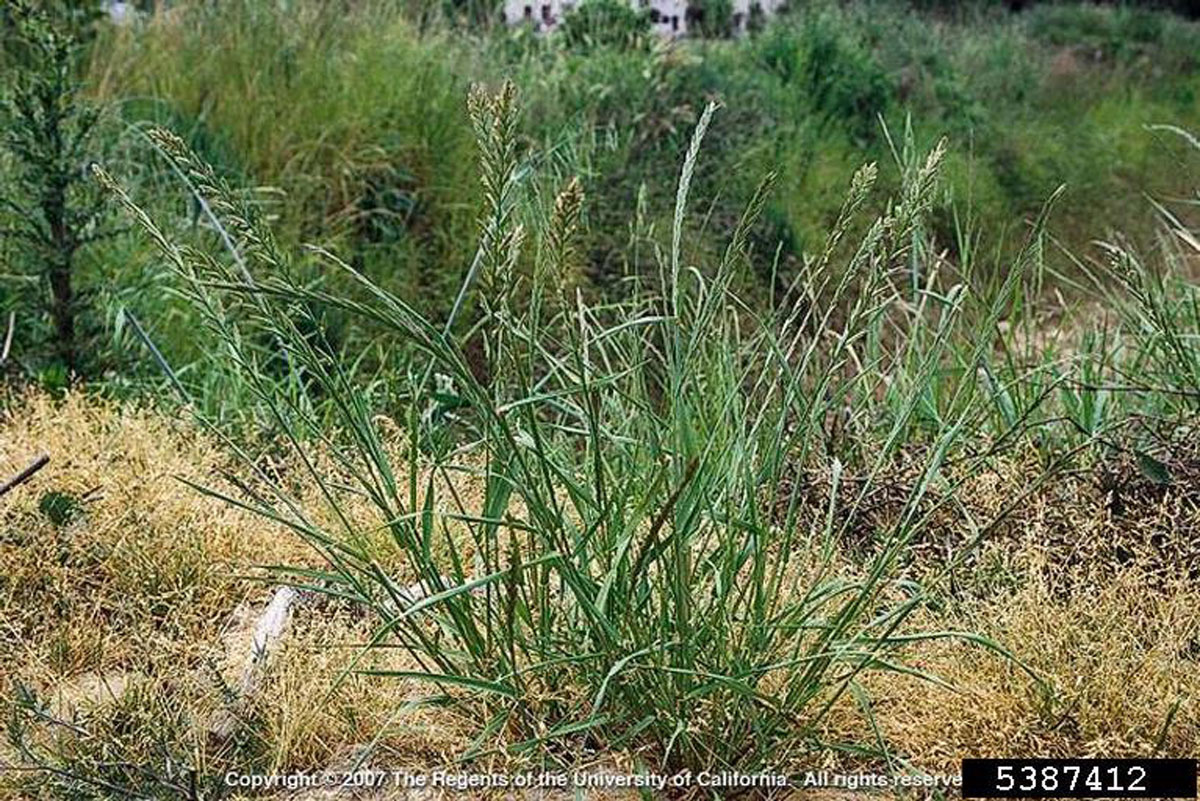
Stable owners spend a lot of time deciding what type of hay to feed to the horses in their care. However, it’s as important to know which hays to avoid, according to Rhonda Hoffman, PhD, a professor and director of horse science at Middle Tennessee State University.
Hoffman said there are a few grasses to avoid in hay or forage if you are feeding horses. They include:
- Perennial ryegrass and rye. This quick-growing grass is popular in dairy pastures. However, Hoffman explained that the seed heads contain an endophyte neurotoxin, which can cause minor tremors. Kentucky Equine Research also recommends avoiding the grass for laminitic horses.
- Dallisgrass
- Argentine bahiagrass. The seed heads contain ergot fungus that causes abortion in mares.
- Johnsongrass, Sorghum grasses/Sudangrass. These varieties accumulate hydrocyanic acid, which causes cyanide poisoning, abortion in mares, and irreversible bladder cystitis.
- Switchgrass, which causes photosensitivity, peeling skin, mouth ulcers and liver disease.
- Foxtail Millet (aka German Millet) and Meadow foxtail. These plants have coarse, fuzzy seed heads that lodge in the tissues of the cheek and gums, causing festering lesions. They can also cause kidney and joint issues.
Although not considered hay, lawn clippings should also be avoided. Hoffman warned that they are dangerous to horses. Horses can easily choke on mown grass clippings because they can swallow large amounts easily with little chewing.
“Warm, moist lawn clippings host fungus, bacteria and molds that can cause diarrhea, colic or respiratory distress,” she said. Fertilizers and herbicides used in lawn care products can be toxic to horses.”
Mowing also shreds lawn plants and prevents horses from being able to sort out toxic plants that might have been growing in the lawn. Many ornamental shrubs, especially boxwood, foxglove, oleander and yew, are extremely toxic to horses, so landscape trimmings should never be offered or placed in areas where horses can access them.


